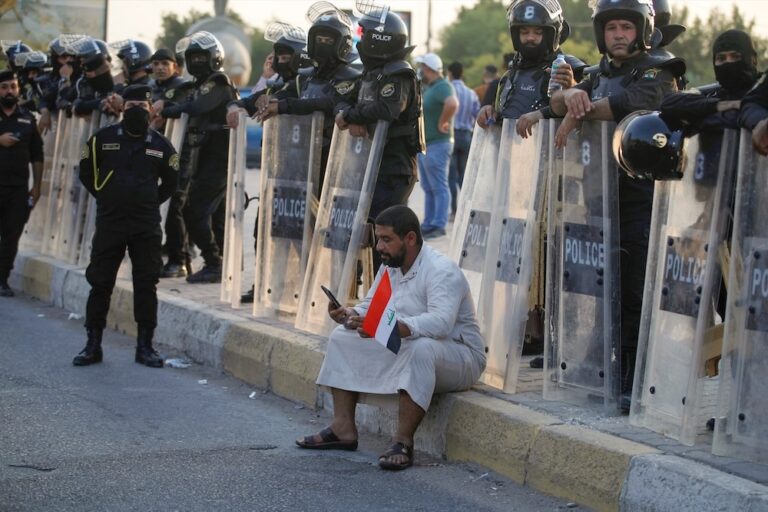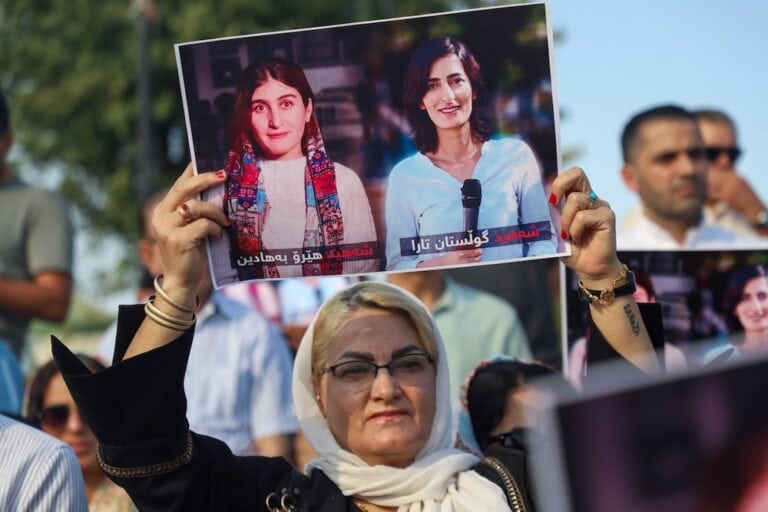The new media law's vagueness and many serious omissions are all the more incomprehensible for the fact that many NGOs offered detailed critiques and proposed specific recommendations for ways to better protect journalists and combat impunity.
(RSF/IFEX) – Reporters Without Borders regards Iraq’s new law on the protection of journalists as pointless at best and dangerous at worst. Adopted on 9 August 2011, the law had been under discussion since 2009.
The law that was finally adopted contained changes to the draft that was presented to parliament in May, and took account of the many comments made at the time, including those made by Reporters Without Borders in a letter to the authorities on 10 May that was made public on 16 May. In that sense, the final law seems to represent an improvement.
Although some of the criticized provisions in the earlier draft were dropped, the law’s overall lack of effectiveness and usefulness is unchanged. The result is a succession of 19 articles devoid of specifics despite the bold declared intention not only to “ensure the protection of journalists” (as in the earlier version) but also to “promote the rights of journalists and provide them with needed protection.”
President Jalal Talabani described the law as “stemming from respect for the freedom of the press and expression, as well as guaranteeing the rights of Iraqi journalists and their heirs, and their important role in realizing democracy in the new Iraq.” But this was little more than empty rhetoric.
Where are the concrete measures? Where are the sanctions for violations of the principles proclaimed in the law? Where is the compensation fund? Where is the training for the police and judiciary in protecting journalists and prosecuting attacks on the press? Where is the repeal of jail sentences for journalists and where are the specific measures to protect the confidentiality of sources and access to information?
The law’s vagueness and many serious omissions are all the more incomprehensible for the fact that many NGOs including Reporters Without Borders offered a detailed critique, proposed specific changes to the wording and recommended ways to better protect journalists and combat impunity for physical attacks on the media.
Reporters Without Borders therefore thinks that this law, which aims to protect Iraqi journalists, in fact does nothing to improve the current situation for the media and even represents an additional danger for media freedom and freedom of information.


